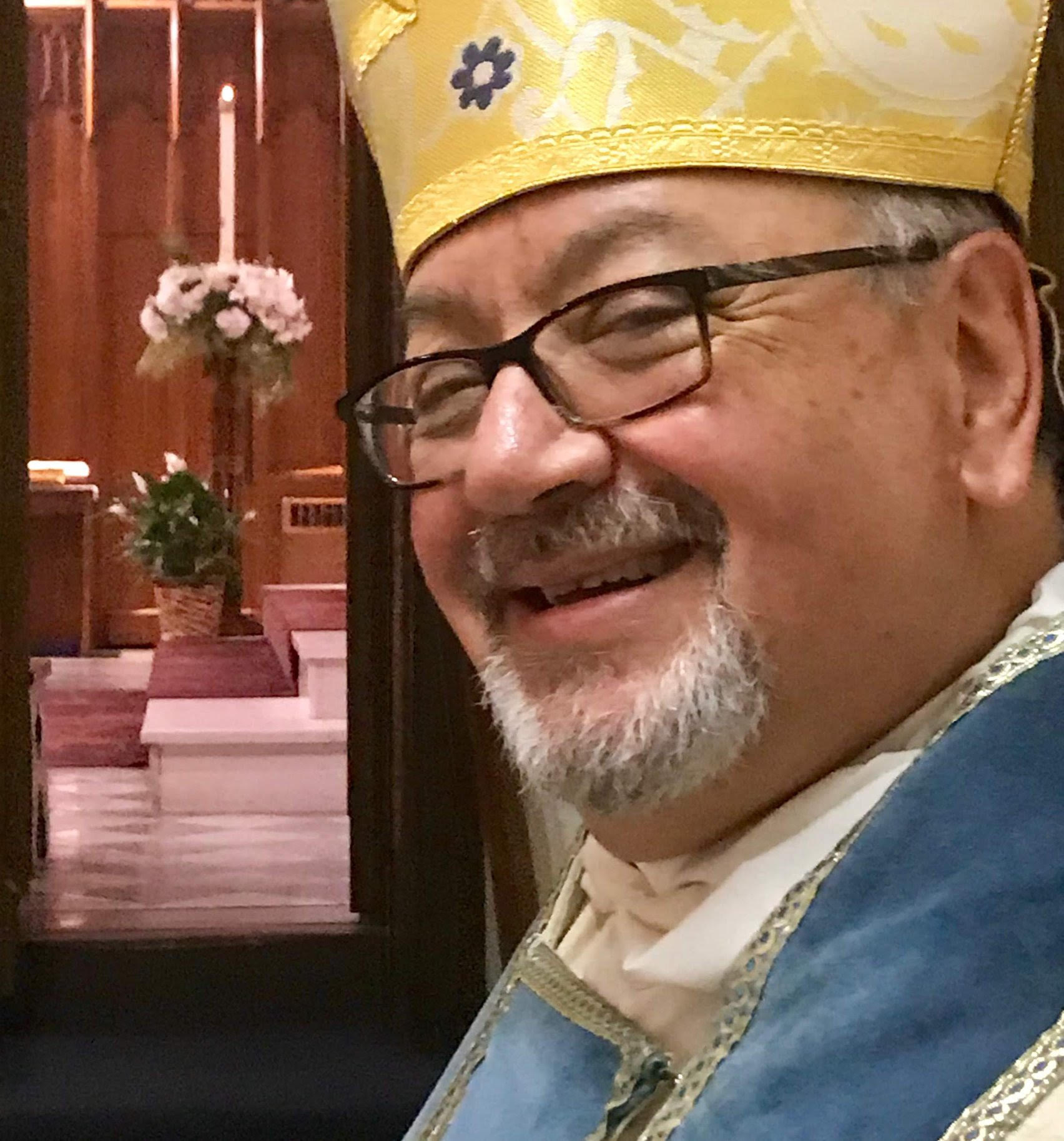By Rt. Rev. Daniel Martins
I am honoured to have been invited to contribute to the conversation among my friends in the Anglican Church of Canada as they prepare to elect a new Primate at General Synod later this year. What follows is an essay of mine that appeared both on my personal blog and on Covenant, the online journal of The Living Church, in 2014, as the Episcopal Church anticipated the election of a Presiding Bishop at General Convention the following year (who turned out to be Michael Curry, who has since retired and been succeeded by Sean Rowe). While eleven years separate that deliberation from the current one in Canada, the underlying issues and forces are startlingly similar, so what I wrote then remains germane in most respects. Still, it may be worth noting at the outset that there are some polity differences between the Episcopal Church and the Anglican Church of Canada—most notably that the ACoC does have Metropolitan Archbishops who have concrete canonical authority, whereas the provincial structure in TEC is much weaker, and, while recent General Conventions have effectively curbed some of the authority of diocesan bishops, the inertia of tradition is that there is generally no ”higher authority” than the Bishop Ordinary of a diocese. While her name does not appear in the piece, the Presiding Bishop at the time was Katharine Jefferts Schori. There is a third-person reference to the Bishop of Springfield, and this is self-referential, as I myself held that office at the time. ‘815’ is shorthand for TEC’s churchwide governance apparatus.
As the Episcopal Church lumbers on toward the next General Convention in the summer of 2015, the atmosphere is thick with confusion and questioning about structure and governance. Just last week, the Executive Council met and considered a controversial revised oversight structure for what is arguably one of the most successful ministries in the history of TEC—the United Thank Offering (UTO). Questions have been raised in various parts of the blogosphere about just who the staff at “815” and its various satellites is accountable to. Is it the Presiding Bishop through her appointed Chief Operating Officer (Bishop Stacy Sauls)? Or is it the Executive Council, which is a steward of the authority of General Convention when the whole body is not in session?
Meanwhile, in the background—but not too far in the background—the Task Force for Reimagining the Episcopal Church (TREC) is revved up in anticipation of its 2015 General Convention deadline. This is the group created by General Convention in 2012 and charged with the impossible task (and meager resources with which to accomplish it) of coming up with an outside-the-box proposal for reconfiguring the governance structures of the church in view of several ominous indicators of (terminal?) institutional decline.
To add interest to the mix, we’ll also be electing a Presiding Bishop. Speculation abounds about whether the current occupant of that office will be among those nominated for the next nine-year term, and whether she will be elected if nominated, but … we won’t know until we know.
So it seems a propitious moment to suggest that a sensible way forward invites us to take a step “back to the future.” Until the 1940s, the Presiding Bishop was simply the senior active member of the House of Bishops. Upon assuming the office, he held onto his day job as the actual bishop of an actual diocese. He wasn’t in any substantial way a figurehead and CEO. That is no longer permissible under the canons as they are presently written. But we can change that. At the last convention, the House of Deputies bravely tried to do so, but the proposal was defeated in the House of Bishops (over the dissenting vote of the Bishop of Springfield, as is sadly so often the case).
It’s time to revive the idea. I’m not suggesting we go back to making the senior active bishop the Presiding Bishop. But it would be healthy on many levels if we could elect a Presiding Bishop without requiring that person to resign his or her see in order to take up the new position. Of course, we would need to re-write the canonical job description to make this practically feasible. Removing the requirement that the Presiding Bishop visit every diocese during a nine-year term would be the major component of this revision. Removing the expectation that the Presiding Bishop serve as chief consecrator every time we ordain a new bishop would be another big piece. It would probably also be necessary to come up with a way of aiding the diocese whose bishop is elected in calling a suffragan or assisting bishop to take up some of the load. And we may want to think about creating a new position called something like General Secretary, someone to mind the store and take care of the daily operations of … whatever we end up having that still has daily operations. Lots of other Anglican provinces have an arrangement like this.
The advantage would be that we have a Presiding Bishop and Primate who is actually the bishop of something. A bishop is by nature and definition a pastor, not an executive or a figurehead. Our Primate is not an Archbishop (we’ve had that “discussion” more than once and rejected the idea), and has no metropolitical authority. So, the person occupying the office is effectively churchless. And a bishop without a church is like a … well, you get the idea.
Lest you think this is a bizarre suggestion: Out of the 38 Anglican provinces, only two—the Episcopal Church and the Anglican Church of Canada—have “dedicated” Primates, that is, unattached to a diocese. Even the Primate of All England and visible face of the worldwide Anglican Communion is the bishop of a diocese, and makes regular parish visitations in the Diocese of Canterbury. For that matter, a man who lives in Rome and goes by the name of Francis claims the title Supreme Pontiff of the Universal Church only because he first holds the title Bishop of Rome, elected to that position by the senior clergy (“cardinal rectors,” as they might be called in The Episcopal Church) of the diocese. Our practice is an anomaly, and theologically incoherent.
This proposal is also consonant with what TREC seems to be aiming at: a structure that is more networked than hierarchical, more nimble and less bureaucratic, more driven by theology (formed by scripture and tradition) than by the models of post-WWII American corporations. We can do this.

The Rt. Rev. Daniel Martins is retired Bishop of the Diocese of Springfield in the Episcopal Church and a member of Communion Partners (TEC).

